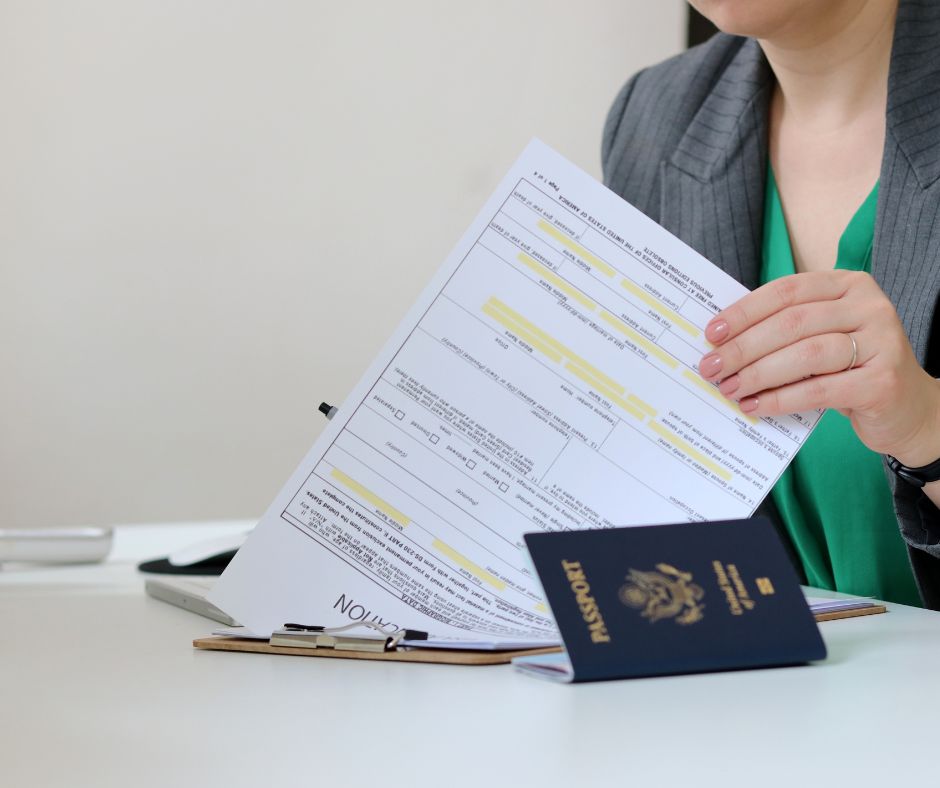
Asylum is a vital legal protection that individuals who have fled danger in their home countries can apply for to gain the right to remain in the U.S. However, not every asylum application is approved. If you are concerned about having your claim for asylum denied, understanding why denials happen and what you can do next is crucial.
EMP Law, a North Carolina law firm, has a long history of helping immigrants navigate complex immigration laws. The firm is known for protecting individuals’ rights against powerful opponents, including the U.S. government. With a deep commitment to client success, the experienced immigration asylum attorneys at EMP Law provide compassionate representation to those seeking asylum and other forms of immigration relief.
What Is Asylum?
Asylum is legal protection that allows individuals to settle in the U.S. permanently if they can prove that they suffered persecution or have a reasonable belief that returning to their home country would put them at risk of persecution. To qualify for asylum, the persecution must be based on the applicant’s actual or perceived:
- Race,
- Religion,
- Nationality,
- Political opinion, or
- Membership in a particular social group.
To apply for “affirmative” asylum, you submit an application to the United States Citizenship and Immigration Services (USCIS). A USCIS officer reviews your case and decides whether to grant asylum after interviewing you.
If you are in removal proceedings, you apply for “defensive” asylum. Defensive asylum applications involve immigration court proceedings, where you try to convince an immigration judge that you qualify for asylum.
What Happens When Asylum Is Denied?
What happens if your asylum case is denied depends on whether you are using affirmative or defensive asylum and the reason for the denial. If USCIS denies your affirmative asylum application, it may refer your case to immigration court, where you can request defensive asylum.
If a judge denies your defensive asylum request, you still have options, including:
- Appealing;
- Asking the government to reopen or reconsider the case; and
- Seeking other forms of relief, such as protection under the Convention Against Torture (CAT).
If a judge denies your asylum claim and you do not successfully pursue an alternative, you typically must depart the U.S.
Common Reasons Asylum Claims Are Denied
Having your request for asylum denied can be deeply distressing. An experienced attorney can help you minimize the risks of denial based on these common reasons.
1. Insufficient Evidence
When applying for asylum, you must prove you fit the legal definition. That means you must provide enough specific evidence to convince the USCIS officer or judge that you genuinely fear harm in your home country based on one of five grounds.
Asylum law is highly technical, making an attorney’s guidance invaluable. Your lawyer helps you not only identify and gather evidence but also tie that evidence directly to the legal asylum standard.
2. Missing the One-Year Filing Deadline
You must apply for asylum within one year of arriving in the U.S., with two limited exceptions. First, you may get an exception based on changed conditions in your country, leading you to gain a credible fear of persecution. You can also get an exception if extraordinary circumstances prevented you from filing on time.
Filing outside the deadline without requesting an exception can lead to an automatic denial. Even if you request an exception, it is up to you to convince the officer or judge that you qualify for one. An asylum lawyer can help you meet the filing deadline, or, if you have nearly or already missed it, we can help you explain why you should get an exception.
3. Failure to Qualify
To receive asylum, you must directly link your fear to one of the five protected grounds. Unfortunately, the reasons people fear returning to their home countries do not always fit neatly into those categories.
Sometimes, failure to qualify is more a matter of failing to frame your claim to fit within the technical legal framework of asylum. An asylum lawyer can help ensure you tie your evidence directly and thoroughly into the specific legal requirements of asylum.
4. Inconsistencies and Credibility Issues
Credibility is a critical factor in asylum cases. Inconsistent or conflicting statements during interviews, hearings, or in your supporting documents can lead officers and judges to conclude you are not telling the truth and deny your application.
Many asylum seekers have experienced traumatic events, and memory lapses surrounding those events can be common. Plus, despite telling the truth, some people may not use the tone or have the demeanor that an officer or judge expects.
With a lawyer’s help, you can straighten out or explain inconsistencies. We also help you practice for questions or testimony to become more comfortable with the process, while helping you understand the purpose of the questions.
How EMP Law Can Help
If the government denies your asylum claim or you are worried about having your request for asylum denied, contact EMP Law today. We are dedicated to fighting for immigrants’ rights and helping them start their lives in the U.S. Call today to schedule a consultation.

